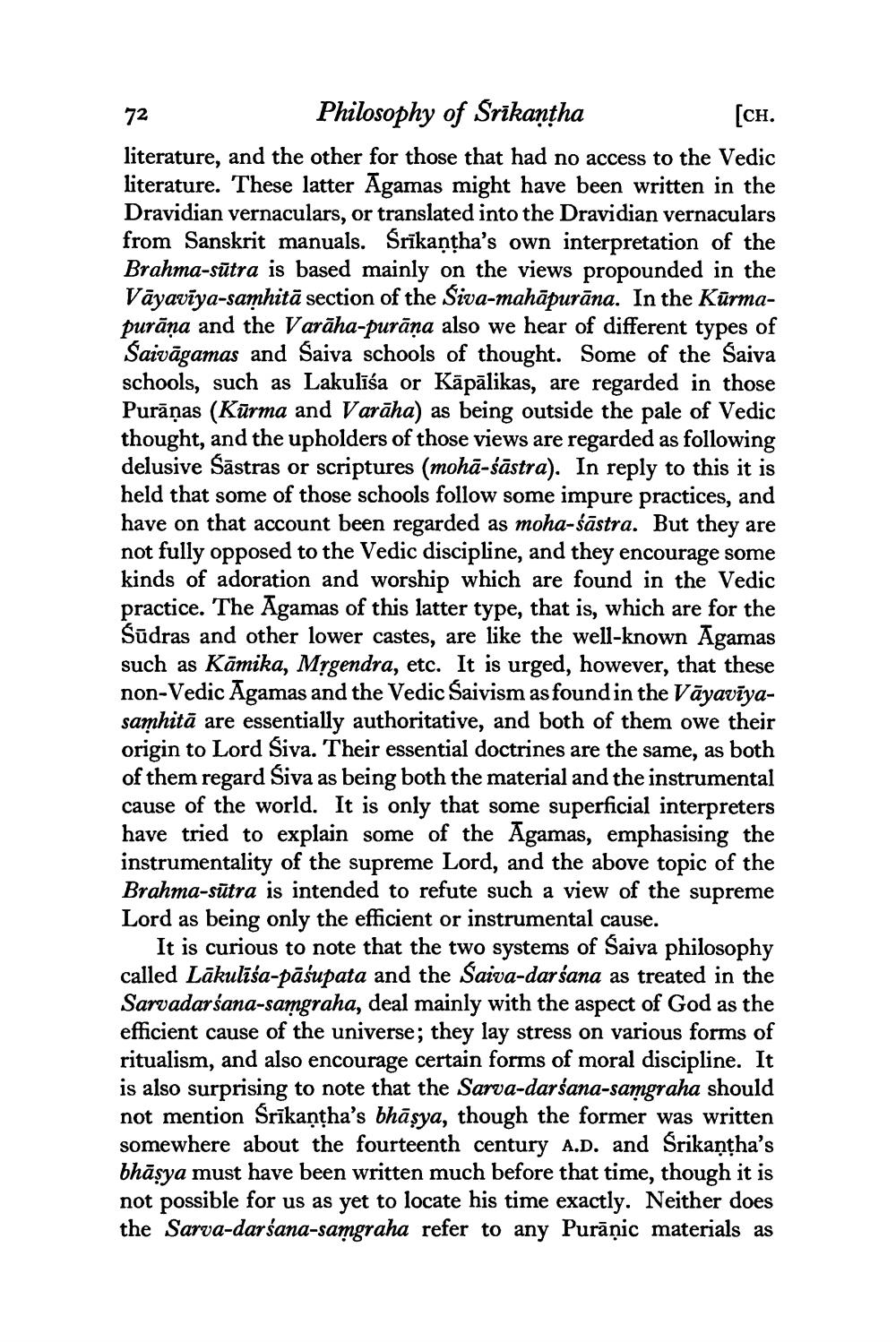________________
72
Philosophy of Srikantha
[CH. literature, and the other for those that had no access to the Vedic literature. These latter Agamas might have been written in the Dravidian vernaculars, or translated into the Dravidian vernaculars from Sanskrit manuals. Srīkantha's own interpretation of the Brahma-sūtra is based mainly on the views propounded in the Vāyavīya-samhitā section of the Siva-mahāpurāna. In the Kūrmapurāna and the Varāha-purāņa also we hear of different types of Saivāgamas and Saiva schools of thought. Some of the Saiva schools, such as Lakulīša or Kāpālikas, are regarded in those Purāņas (Kūrma and Varāha) as being outside the pale of Vedic thought, and the upholders of those views are regarded as following delusive Šāstras or scriptures (mohā-śāstra). In reply to this it is held that some of those schools follow some impure practices, and have on that account been regarded as moha-śāstra. But they are not fully opposed to the Vedic discipline, and they encourage some kinds of adoration and worship which are found in the Vedic practice. The Agamas of this latter type, that is, which are for the Sūdras and other lower castes, are like the well-known Agamas such as Kāmika, Mrgendra, etc. It is urged, however, that these non-Vedic Agamas and the Vedic Saivism as found in the Vāyavīyasamhitā are essentially authoritative, and both of them owe their origin to Lord Siva. Their essential doctrines are the same, as both of them regard Siva as being both the material and the instrumental cause of the world. It is only that some superficial interpreters have tried to explain some of the Agamas, emphasising the instrumentality of the supreme Lord, and the above topic of the Brahma-sūtra is intended to refute such a view of the supreme Lord as being only the efficient or instrumental cause.
It is curious to note that the two systems of Saiva philosophy called Lākulīša-pāśupata and the Saiva-darsana as treated in the Sarvadarśana-samgraha, deal mainly with the aspect of God as the efficient cause of the universe; they lay stress on various forms of ritualism, and also encourage certain forms of moral discipline. It is also surprising to note that the Sarva-darśana-samgraha should not mention Srikantha's bhāsya, though the former was written somewhere about the fourteenth century A.D. and Srikantha's bhāsya must have been written much before that time, though it is not possible for us as yet to locate his time exactly. Neither does the Sarva-darśana-samgraha refer to any Purāņic materials as




